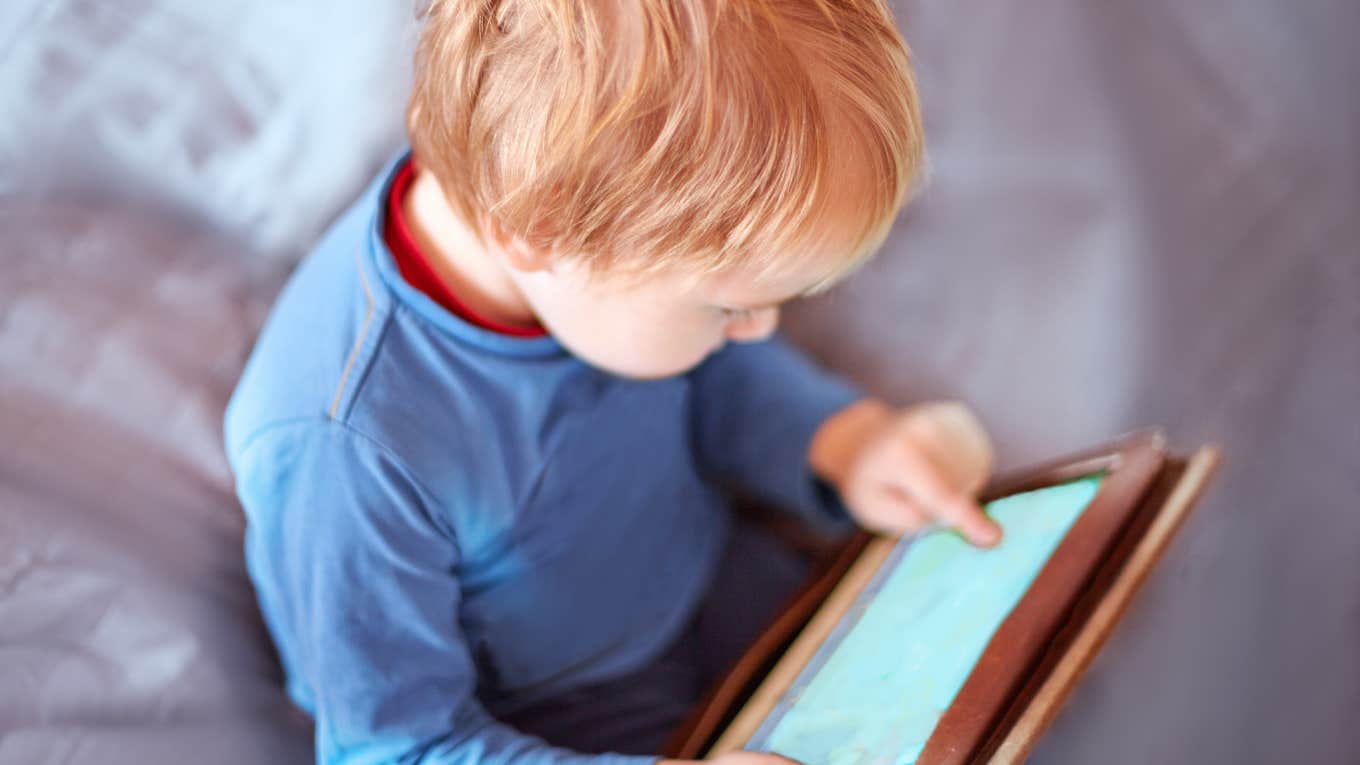Mom Explains Why She Regrets Letting Her Son Become An IPad Baby
She's noticed a change in her son's behavior, which is linked to his use of an iPad.
 Xolodan | Shutterstock
Xolodan | Shutterstock A mom admitted that she may have made a mistake in allowing her young son access to an iPad after noticing how his behavior has been impacted by it.
In a TikTok video, a content creator named Brittney Nolte, who documents her family's life, shared that it's quite a parenting battle when it comes to deciding between no screentime and allowing her son to be on his tablet, and fortunately, many other parents can relate.
A mom explained why she regrets letting her 4-year-old son have access to an iPad from the time he was a baby.
"We have tried so hard to not give him his iPad," Brittney began in her video, referring to her now 4-year-old son who has had access to the iPad since he was a baby.
However, despite her best efforts to keep him from being absorbed with his screen, it's proven to be quite difficult.
The mom said she feels guilty trying to take his screen time from him after allowing him access in his early years.
She explained that she feels incredibly bad whenever she denies him access to the iPad, and it doesn't help that he's experiencing mouth and teeth issues that cause him a bit of pain.
Whenever that happens, it's clear that Brittney wants to just give him the iPad as a distraction, but she is warring with wanting to stay firm in her decision about screen time.
"Now that he's 4, that game makes him nuts," she continued. "I feel like when we try again to allow him to have his game, it bites us in the [expletive]." It doesn't help that parents are constantly drilled with information about the importance of limiting their child's screen time or not allowing them to have any at all.
In a study of 7,097 children in the journal JAMA Pediatrics, having anywhere from one to four hours of screen time per day at age 1 is linked with higher risks of developmental delays in communication, fine motor, problem-solving, and personal and social skills by age 2.
It's no secret that children with unfettered access to screens are more prone to problems in their social development and competence since all of their attention is being directed toward a screen instead of something productive, which can even have lasting effects.
Experts and research recommend that parents limit their child's screen time to a certain timeframe.
The American Academy of Pediatrics (AAP) recommends avoiding screens for children younger than 18 to 24 months, except when video chatting with family. The AAP also recommends limiting screen use for preschool children, ages 2 to 5, to just one hour a day of high-quality programming.
In an interview with Health Matters, Dr. Cross, also an assistant professor of clinical pediatrics at Weill Cornell Medicine, explained that it's not always easy for parents to be perfect and strict when it comes to allowing their kids to have access to devices. He encouraged parents to turn on short TV shows like "Sesame Street," where it's educational just as much as it's entertaining.
"[Something] that shows characters interacting and playing cooperatively to model good social skills — rather than giving their child a tablet or a phone. And, if possible, it’s best to watch the educational programming with the child so you can actively engage with them about what they’re watching and learning."
Every child is different, and screen time may not affect one as it does others.
A meta-analysis looked at 18 cohort studies with almost 250,000 participants, trying to gather information about the relationship between screen time and depression, which is one of the major concerns that experts have when it comes to screen time. However, they found no meaningful relationship there. Certain subgroups, certain ages, certain screens — there was some connection, but not all the time, and not across the board.
Similarly, another meta-analysis looked at the relationship between screen time and cognitive functions in around 7,000 kids. Again, researchers were unable to find a connection between screen use and certain cognitive problems. While many of these studies and analyses are helpful and do produce good information about the importance of children and screens, they don't have to be the model for every single child.
It's easy for people to criticize parents and admonish them for allowing their kids to sit in front of the TV or iPads, but sometimes it's not that simple. If parents are trying to get something done or calm their child down, the easiest solution is to put on a 30-minute show and plant their child in front of it while they can continue what they need to do without interruptions.
Of course, a child shouldn't be raised by screens, but as long as there's a good balance between watching shows and actively engaging with your child, whether that's playing outside, surrounding them with other children, or occupying their time with actual toys, then it shouldn't be something to stress about.
Nia Tipton is a staff writer with a bachelor’s degree in creative writing and journalism who covers news and lifestyle topics that focus on psychology, relationships, and the human experience.

